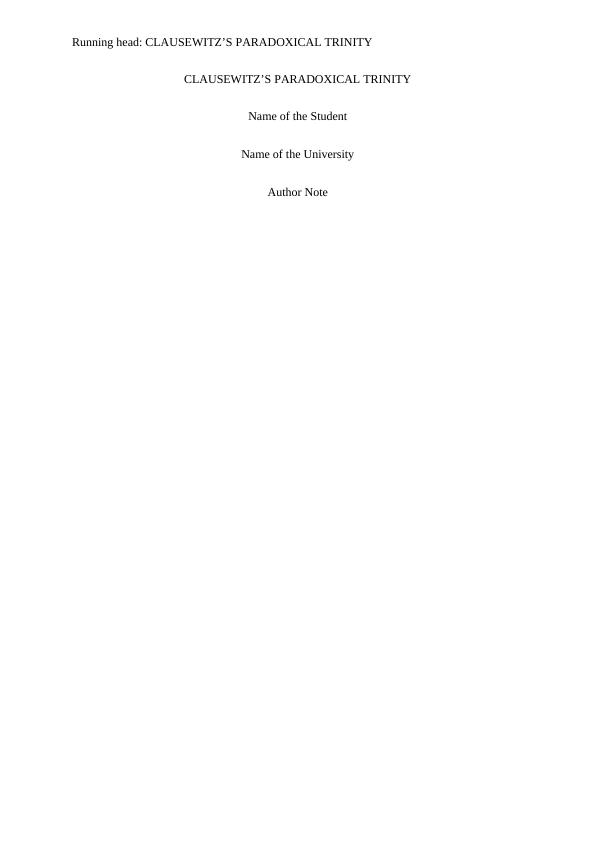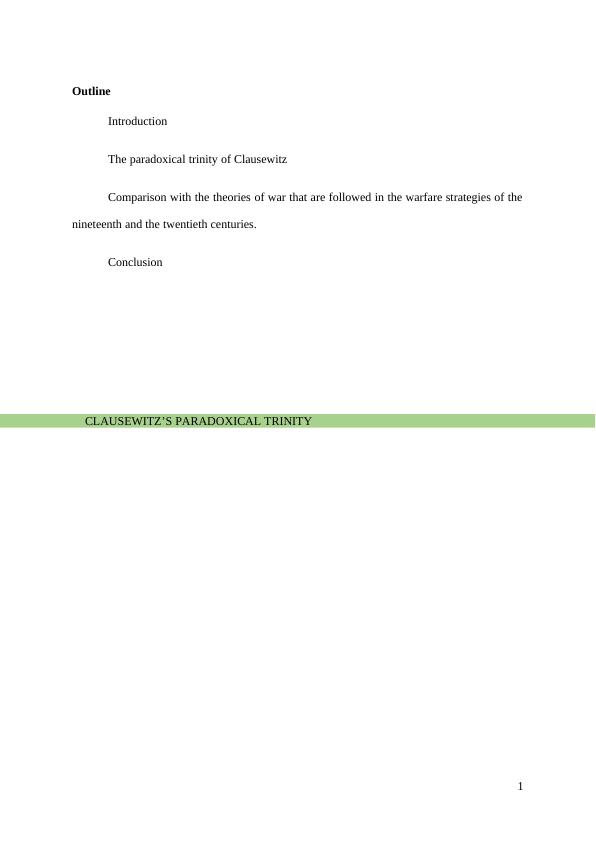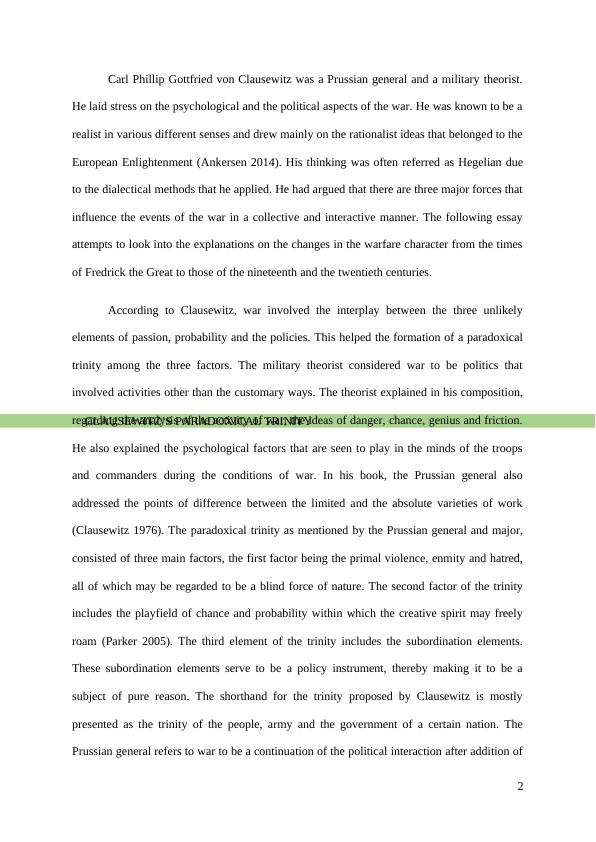Ask a question from expert
H100: Reclaiming the Clausewitzian Trinity
6 Pages1355 Words540 Views
Command and General Staff College
Rise of the Western Way of War Parallel (H100)
Added on 2020-04-15
H100: Reclaiming the Clausewitzian Trinity
Command and General Staff College
Rise of the Western Way of War Parallel (H100)
Added on 2020-04-15
BookmarkShareRelated Documents
End of preview
Want to access all the pages? Upload your documents or become a member.
Evolution of Modern Warfare Techniques: A Study of Clausewitz Trinity
|8
|1738
|151


